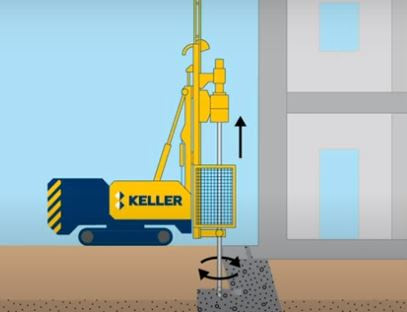
Vibration monitoring is one of the best and most common methods for assessing the condition of most machines. Though there have been a lot of advances in vibration monitoring equipment, selecting suitable sensors for predictive maintenance can be complicated. Today’s article will give you tips on what you must look for when selecting vibration monitoring sensors and how to start your journey immediately!
At its core, predictive maintenance can help you find the right balance between using equipment to its fullest and ensuring that you take care of repairs before a complete breakdown. To find this balance, you must use vibration monitoring sensors that help monitor an asset (and its components) to ensure you get a high uptime and reduce any future repair costs.
The first question that most people ask when starting on their predictive maintenance journey is which sensor they should select. Is there something you need to keep in check when selecting a sensor for predictive maintenance? Before that, let us explain what the P-F interval means.
P-F interval helps describe the time between spotting signs of potential failure to when the failure occurs. In simpler terms, from when you see the smoke until the machine breaks down. Using vibration monitoring equipment is one of the best ways to monitor for potential failures as early as possible. Noise can also help you spot any likely failures days before a breakdown. However, it usually requires maintenance workers who have spent years in the field and know what components have standard or abnormal sounds. Oil analysis can also help you detect some problems weeks in advance, but it’s usually used to supplement other types of sensors.
Vibration monitoring equipment can help you detect symptoms of a potential breakdown several months in advance, giving you enough time to react and an ideal P-F interval. Our team from G3 SoilWorks encourages all clients to focus more on Right Data than Big Data. Therefore, you need to pay close attention to what kind of sensors you must use to get the desired results instead of getting all of them. Our team is always ready to help customers using vibration monitoring sensors combined with machine learning.
You can find a wide variety of vibration sensors in the market. When measuring vibrations, we use accelerometers that can give you readings about movement in one or multiple directions. After all, vibrations are only movements. Vibration monitoring equipment comes in various types, and you must know everything about their differences if you wish to select the correct sensor. For instance, piezoelectric depends mostly on any changes in electric current due to motion. They come with wide frequency response, lower noise levels, and excellent sensitivity but are generally expensive. These accelerometers have been used for several years, making different models available for various applications.
On the other hand, MEMS (micro-electro-mechanical systems) are small sensors that are cheaper than their Piezoelectrical counterparts. You even have this sensor in your smartphone, which is used for several accelerometer tasks like detecting motion. You can use both these accelerometers to help monitor high and low-frequency vibrations.
We hope this blog has helped you understand what you must look for when selecting an ideal solution to help digitize your maintenance. Selecting a suitable vibration sensor does not have to be complicated. All you need to do is research your machine’s RPM and the sensors available in the market. If you have any questions about your next project, don’t hesitate to get in touch with G3 SoilWorks for clarity.
Our professionals from G3 SoilWorks have years of training and experience helping people select the right vibration monitoring equipment for their application. With so many different types of vibration monitoring equipment in the market, our team likes to stay updated with all the latest and greatest technological advancements. If you have any doubts about vibration monitoring sensors or need help selecting the right sensor, call our team at 714-694-3068 for help!
Follow, engage, learn. Stop by our blog to see what’s happening at G3SoilWorks.
G3Soilworks – a full service geotechnical/ engineering geologic consulting firm serving clients since 2009 and delivering expert solutions with our highly experienced team and specialized consultants.
G3SoilWorks
350 Fischer Avenue Costa Mesa, CA 92626
Tel. 714.668.5600
E. info@g3soilworks.com